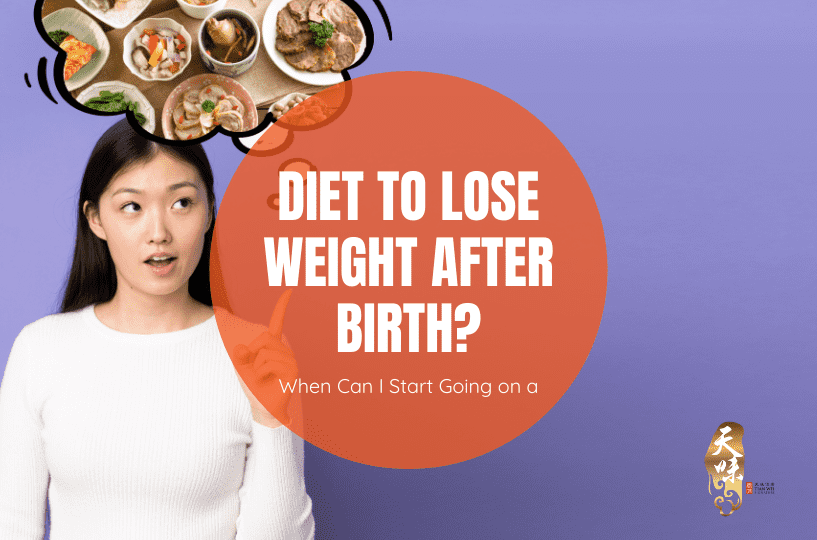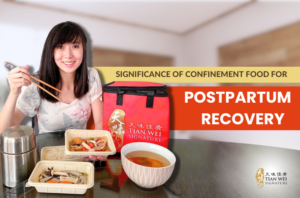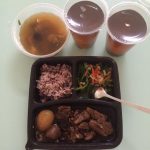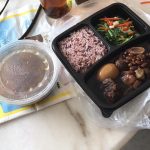81 Tagore Lane, TAG A, #01-11 Singapore 787502 ♦ Reservation : +65 6727 5599
When Can I Start Going on a Diet To Lose Weight After Birth?

Welcoming your newborn into the new world is probably the most beautiful experience a mother can ever have. The cries of your little bundle of joy mark the start to your journey of motherhood. While mothers do have surreal joy and bliss due to their connections to their child, they are also constantly troubled by the changes that happened to their body. Among all body changes, stubborn baby weight and water retention are the most common postpartum struggles that mothers face. Hence, the most popular yet common question asked by mothers all around the globe is “When can I start losing weight after childbirth?”
Do It 6 to 12 Months After Labour
We do understand that you might want to get back to your pre-pregnancy body as soon as possible, but heading straight into a tight diet regime right after your childbirth is probably not the best idea for your health. Hence, it is best to start your regime around 6 to 12 months after labour. Give your body the rest it deserves, let it heal naturally. Your body is currently working at its own pace and it is still adjusting to the changes and your new routine. Give it time. Sometimes, the best way to go forward is to take a step back.
Now that you are aware of when you can start your diet routine, there are still a few things that you should keep in mind when starting your routine!
Practice Healthy Diet and Proper Exercise Routine

The best foods to eat while pregnant usually centers around a protein-rich diet with leafy greens and wholegrains. Similarly after delivery, these foods help speed up your recovery too. Your body will need all the nutrients it can get. Therefore, consult your local dietitians or doctors for further advice. Only do exercises that are approved by the doctors and NEVER overdo yourself.
While it is recommended that you only perform full-blown high intensity exercises and workout regime to lose weight at 6 to 12 months after labour, you can regulate your weight by practicing a healthy diet and start with simple exercises to strengthen your core as soon as you’re comfortable. Here is a general guide on the timeline to exercise:
Credit: Future Learn
Do take note that this is just a general guide and may not be suitable for women recovering from C- section, abdominal separation, pelvic floor dysfunction or other health problems. Do consult your doctor or physiotherapist before starting any form of exercise.
Set a Practical Target for Your Weight Loss
Postpartum weight gain is a common struggle, it is not something to be ashamed of or to be frowned upon. We understand your concerns about wanting to get back to your pre-pregnancy body as soon as possible. Therefore, it is in your best interest that long term and short term weight goals should be set to help you be on track for a realistic weight goal.
Short term goals should be focused on improving your mood, improving your mobility, and reducing stress. While actual weight loss may take longer. Don’t try to lose weight too fast as it may be more detrimental to your health than good. In fact, set your short term goals to a more achievable target, then work slowly (but surely) towards your end goal.
It’s okay even if you skipped a few sessions of exercise, you can always start again on the next session! If you need motivation, focus on the benefits and the purpose of exercising. For example, what do you want your physical health to look like as your children reach adulthood? How can these exercises help you achieve these short term and long term goals?
Don’t Skip Meals
Getting enough nutrition for pregnant women and for postpartum women after birth is important! Perhaps the most important yet most misunderstood practice about diet is to always eat less. But the truth is, eating healthily is more important for the success of your weight loss plan. Especially during confinement, you need to make sure you are getting enough nutrition to recover and breastfeed.
Your body uses up 500 kilocalories a day to produce breast milk. This is your body’s natural way of losing the excess weight gained during pregnancy. Hence, eating adequately is important to help you recover and produce good quality breast milk for your growing newborn. Besides that, it helps to replenish important nutritional stores and provide sufficient energy, so that you can move about for your daily activities with your little one.
Having a confinement food menu that is both nutritious and interesting helps to improve your appetite and your nutrients absorption. To save you the hassle of planning and preparing your daily confinement meals, engaging with a confinement food Singapore delivery service is a great option. All in all, instead of eating less, make sure you are eating a healthy and sufficient portion for every meal.
Stay Hydrated
How do you keep tabs on your weight and calorie intakes during pregnancy? The wise thing to do here is to stay hydrated! Studies show that keeping yourself hydrated will reduce hunger. How if you might ask? Well, water is a natural appetite suppressant. Thus, it will help filling in spaces inside your stomach and in turn, reduces hunger.
Furthermore, drinking water has also been proven to tone down unnecessary snacking and promote healthy eating while pregnant and after childbirth as well! According to a study in 2014, 50 overweight women were instructed to drink 500 ml of water 30 minutes before every meal time (breakfast, lunch, dinner) in addition to their usual drinking habits for 8 weeks in a row. The result? The participants experienced a reduction in body weight, body fat, and body mass index. In addition, they also experienced appetite suppression.
Breastfeed If You Can
Do you know that you can actually lose weight just by breastfeeding? While it might be a tiring experience, you can actually lose weight by emptying your natural milk pouch. Wait, how does that work? Well, your body fats and calories intake are converted into fuels for milk production, then the milk goes to the baby. Specifically, your body burns 300 to 500 kilocalories a day to produce breast milk, which may indirectly help you to lose weight. So what are you waiting for? Breastfeed if you can! You might be interested in MumChecked as they offer breastfeeding essentials that can make breastfeeding easier for the mothers!
Limiting Fast Food Intake
Your journey and ability in losing weight may correlate with your ability to refrain from those high calorie, high fat fast foods. A regular size, normal set meal from these fast food restaurants easily amounts up to 1000 kilocalories or more in one setting. On the other hand, your regular balanced meals that have 1 Chinese rice bowl of your choice of grains, half a plate of vegetable and a serving of meat would normally only amount up to 500 to 700 kilocalories depending on method of cooking. No wonder those who eat fast food often, gain weight easily, be it pregnant, postpartum, or not.
These foods are not only high in calories and fat, it is also high in sugar and salt which would not be good for glucose control, water retention and blood pressure, especially for mothers who may have certain post pregnancy complications. We know that it is hard to always say no to your cravings, but trust the process of making choices towards being a healthy mother for your baby and family. Need something to munch on? Why don’t you give cashew nuts a try? They are low in sugar, rich in fibre and they contain healthy fats for the heart too!
Sleep Well
Postpartum is not the time for you to play Superwoman. In fact, this is the most important time for you to be well-rested and get enough shut eye. In terms of weight loss, sleep regulates your hormones and metabolism, which helps you to make healthier food choices and less likely to binge.
You might feel overwhelmed with the house chores and your little one. It’s difficult to prioritize yourself when your baby is all you can think of. To help with the situation, you can opt to find support from your partner, family members or friends. Perhaps you can also discuss with your loved ones on how they can help you get sufficient rest during this period of time. Plus, you can also play tag-team with your partner during night feeds so that you can have more rest.
We hope this guide has given you a better idea about weight loss after birth. Meanwhile, if you are one of the pregnant mommies who are simply reading this guide as an early preparation, you might want to learn more about what to eat during labour preparation too!
All in all, the journey to motherhood is never an easy feat. You are bound to experience some highs and lows. This experience would only serve to make you a stronger person. You may successfully return to your pre-pregnancy body weight, but it may not be exactly the same body shape as before.
Thus, it is also important to take good care of yourself and to embrace your current body as it is. Your body has done amazing things for you and your baby. Treasure it because you only have one body. Your health matters!







